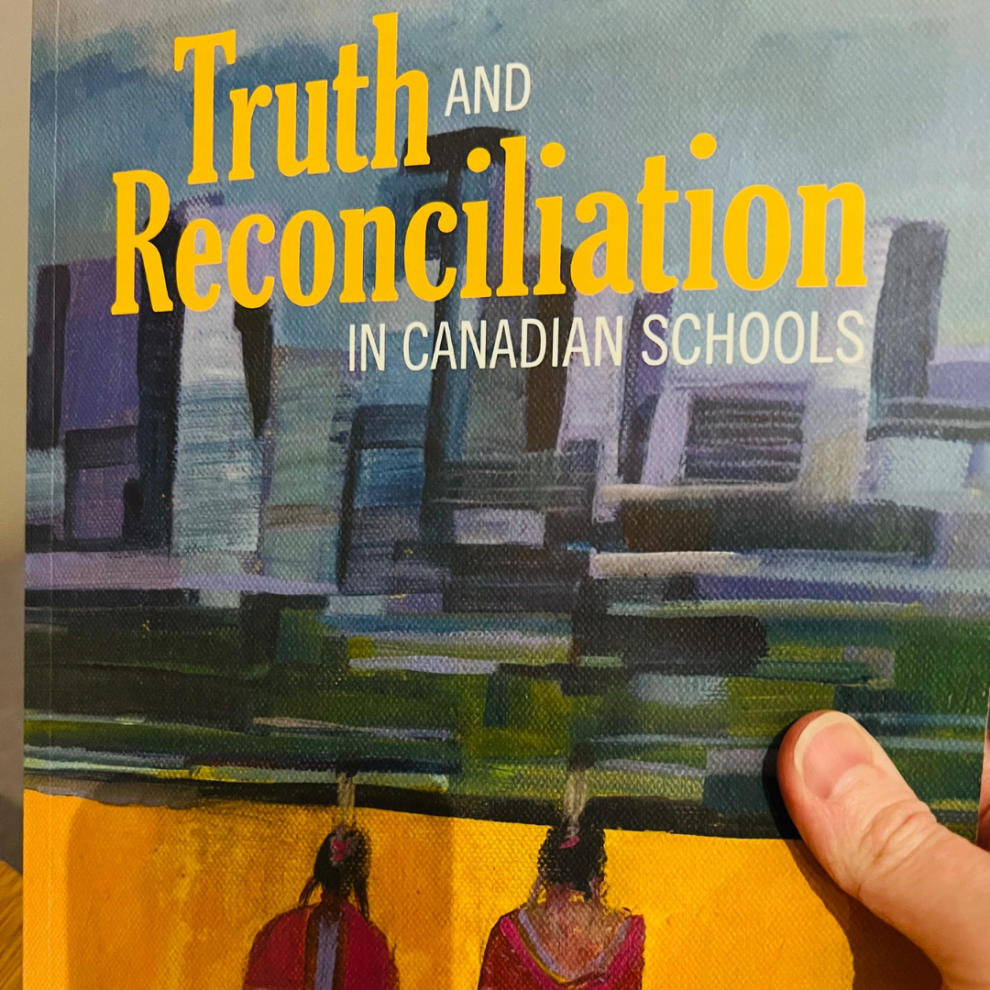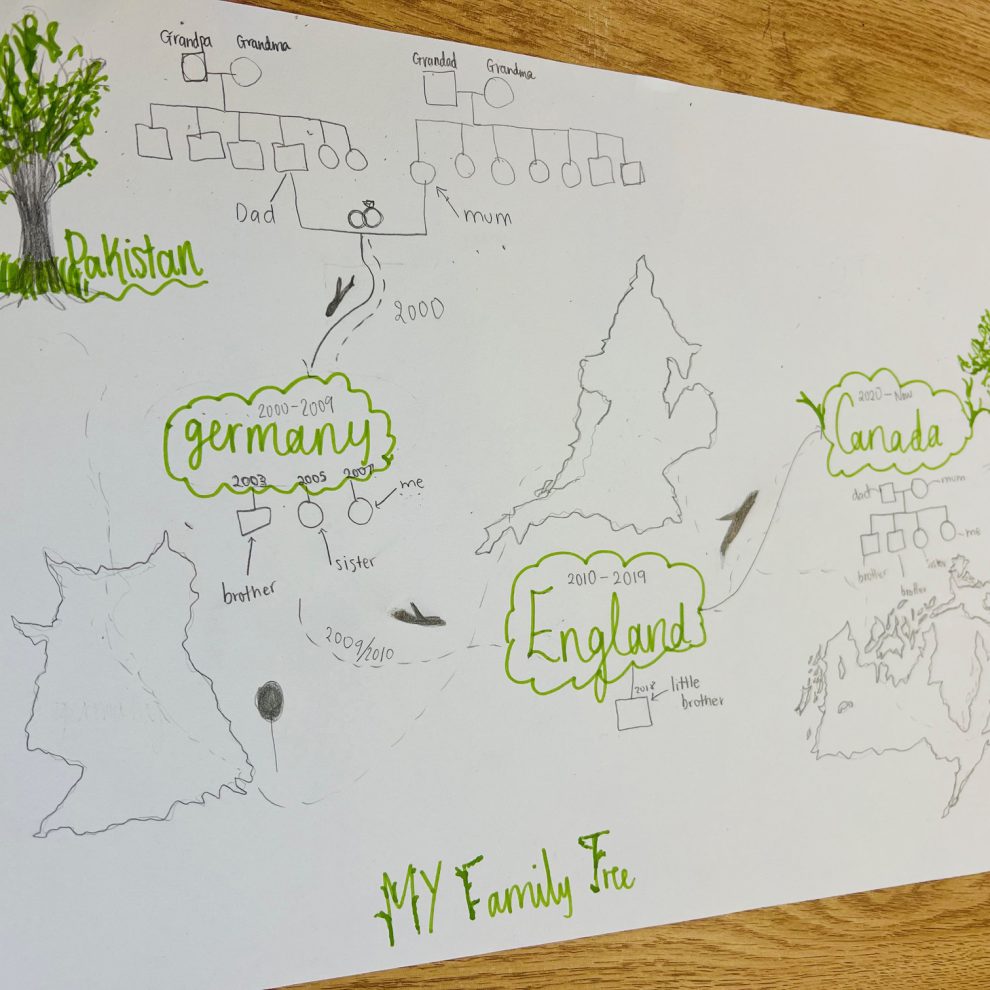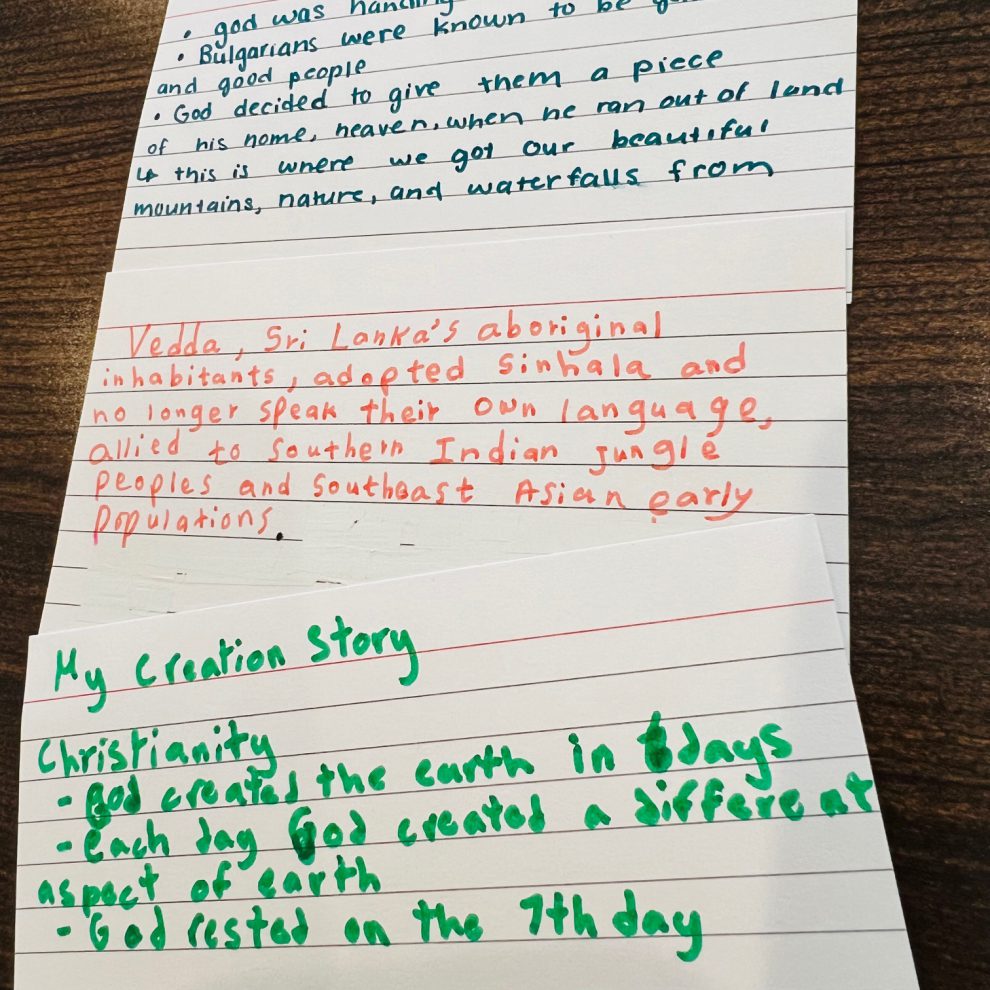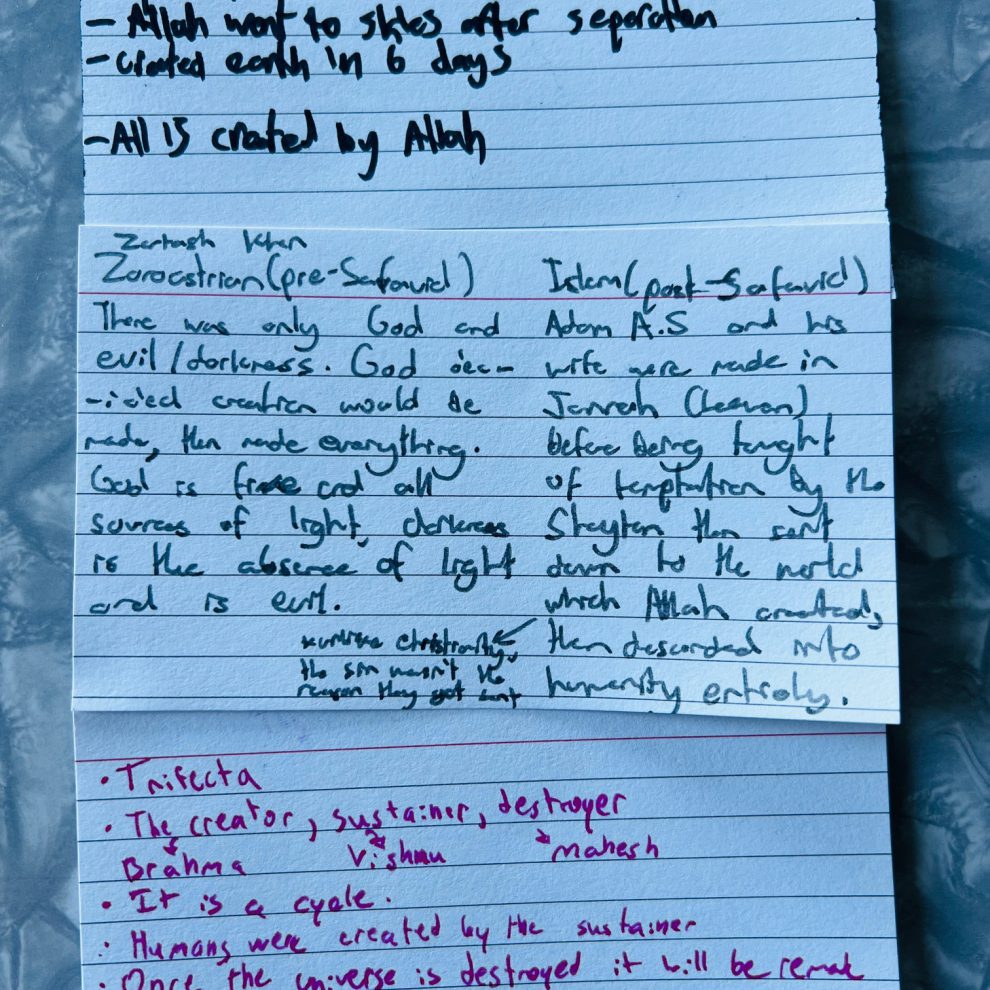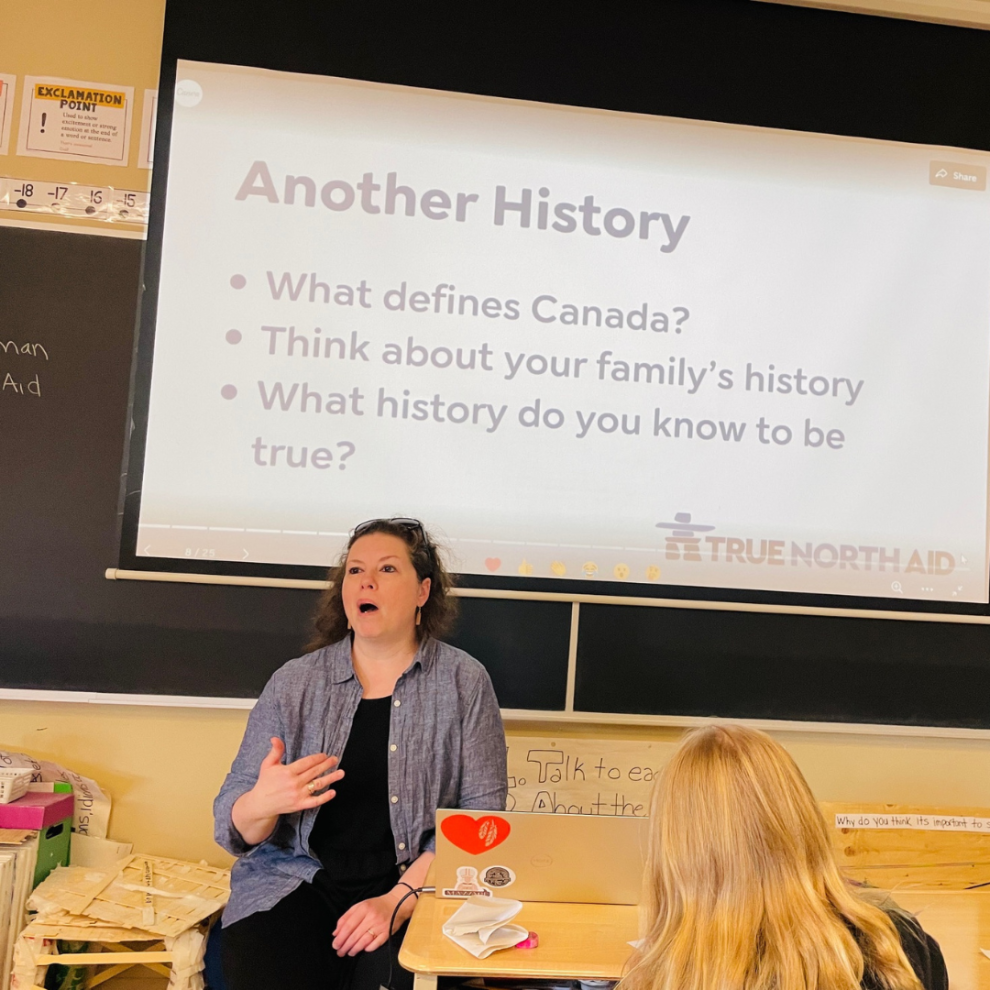Reconciling the Term 'Settler'
by Katie Koopman | Reconciliation Program Coordinator
Photo below: Map courtesy of Grade 11 Woodbridge College student
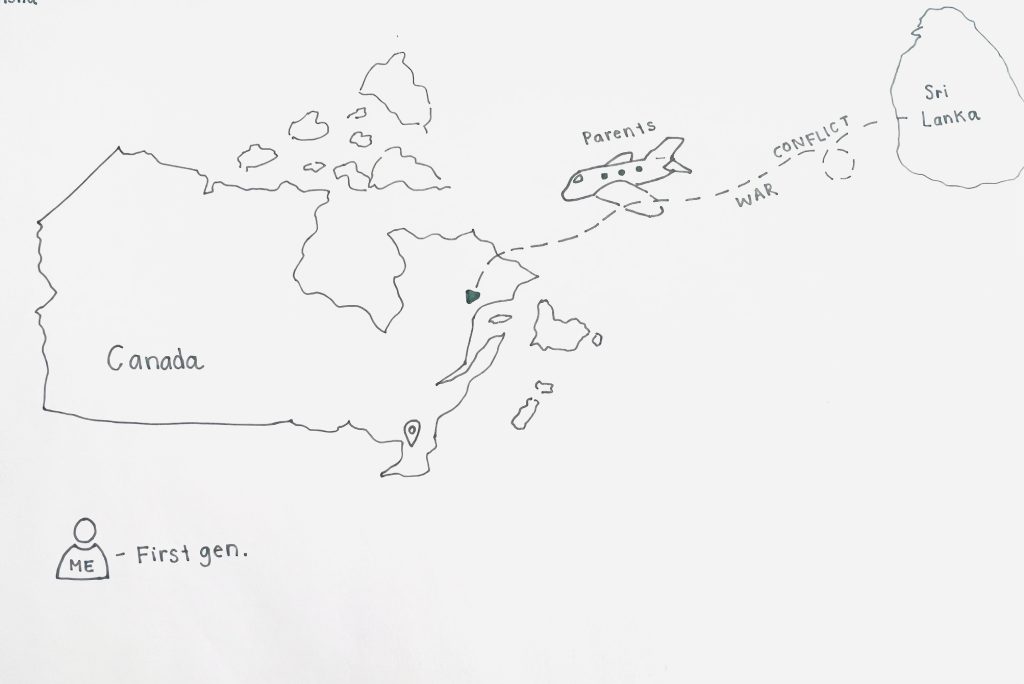
Reconciliation in Canada is a tricky concept, especially when non-Indigenous people are challenged to take a deep dive into their own histories and explore terms like ‘colonialism’. No one wants to be associated with a system that has left an extensive and harmful impact upon others. The term ‘Settler’ is yet another word that many refuse to come to terms with. Why?
Whether 1st or 10th generation non-Indigenous people have come to this land by choice or force, making us all settlers, a term that some people think is divisive. A term that some people feel undermines or perhaps dismisses their family’s history in Canada. However, the conversation is not about how long non-Indigenous people have lived in Canada, rather it being about our relationship and responsibility to it.
However, using the word Settler does not intend to do any of these. In a spirit of reconciliation, it is simply a way to make sense of the non-Indigenous person’s relationship to this land, and to the people it first & still belongs to.
True North Aid’s Reconciliation Program Coordinator, Katie Koopman, underpins this understanding in the 𝗦𝗲𝘁𝘁𝗹𝗲𝗿 𝗗𝗶𝘀𝗰𝘂𝘀𝘀𝗶𝗼𝗻 𝗦𝗲𝗿𝗶𝗲𝘀, a 4-part reconciliatory educational program that focuses on the topics of Privilege, Land, Residential Schools, and Allyship. From the classroom to the boardroom, virtually and in-person, hundreds of people have now participated since 2021.
In April, Woodbridge College Grade 11 high school students applied this understanding in two self-reflexivity exercises that asked them to consider their own histories, including how and why their families came to Canada, and to reflect upon their own cultural or religious creation stories that have shaped their understanding of their relationship to land, and to each other.
The students sketched out their personal experiences and were eager to share when asked to. In one class alone, students represent the countries of Afghanistan, Bulgaria, India, Iran, Pakistan, Poland, Singapore and Sri Lanka.
The point of these exercises were to help students socially locate themselves in the wider conversation about Canada:
– That this country is long defined by a single, Eurocentric worldview
– That this country is made up of more than just one narrative, including their own
– That our personal stories are not linear because humans and histories are complicated, as is non-Indigenous and Indigenous relationship in Canada.
And so, the questions we reflected upon at the end of our time together was, for whatever reason, and however we each have come to live here on this land, as Settlers, how do we do better?
Getting stuck on the length of time one’s family has lived in Canada only serves to justify or ‘one-up’ an argument, with no intention of committing to understanding Canada’s complex relationship between non-Indigenous and Indigenous people, and our responsibilities as citizens to collectively further reconciliation and social justice.
Propelling Truth and Reconciliation forward in Canada challenges Canadians to socially locate ourselves and our histories. When we do so, we provide a foundation to engage others in a more nuanced and thoughtful conversation about terms that, at one time, we may not have acknowledged.
*Image of book: 𝙏𝙧𝙪𝙩𝙝 𝙖𝙣𝙙 𝙍𝙚𝙘𝙤𝙣𝙘𝙞𝙡𝙞𝙖𝙩𝙞𝙤𝙣 𝙞𝙣 𝘾𝙖𝙣𝙖𝙙𝙞𝙖𝙣 𝙎𝙘𝙝𝙤𝙤𝙡𝙨 𝙗𝙮 𝙋𝙖𝙢𝙚𝙡𝙖 𝙍𝙤𝙨𝙚 𝙏𝙤𝙪𝙡𝙤𝙪𝙨𝙚
